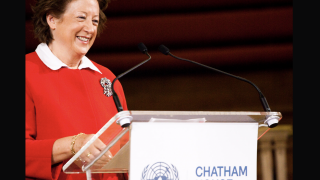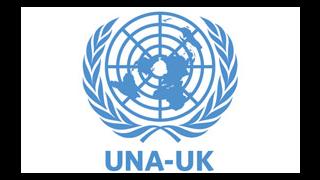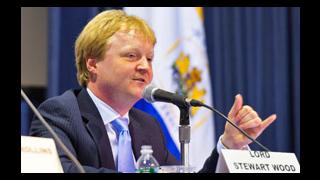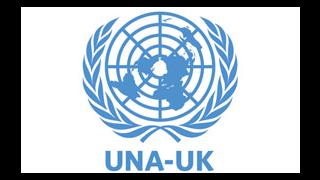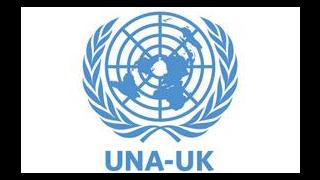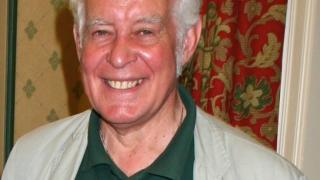
Last month, UNA-UK reported the sad death of Malcolm Harper, who was Director of the Association for over two decades.
An obituary celebrating his life as a human rights and peace campaigner was published in today's Guardian. Click here to read the obituary
A full version of UNA-UK's tribute is included below.
UNA-UK is grateful to members, supporters and colleagues from around the world who have sent messages of condolence for transmittal to his family. We are also grateful to those who provided us with reflections on his life and achievements.
Malcolm Harper obituary: people’s ambassador for the UN who inspired campaigners from Charlbury to China
Sir Jeremy Greenstock, UNA-UK Chairman, and Natalie Samarasinghe, UNA-UK Acting Executive Director
British campaigner and humanitarian Malcolm Harper dedicated his life to the values of the United Nations: peace, development and human rights for all. Throughout his long career – first at Oxfam and later as Director of the UN Association (UNA-UK) – he gave meaning to these values, helping those in need, supporting activists around the world, and inspiring individuals to take seriously their responsibilities as global citizens.
Born in 1939 to Leonard, an engineer, and Enid, Malcolm spent his early years in wartime London. Both he and his twin brother, Sir Ewan Harper, were educated at Marlborough College and Trinity Hall, Cambridge, where Malcolm read History, rather reluctantly. Classics would have been his first choice but places were scarce at the time.
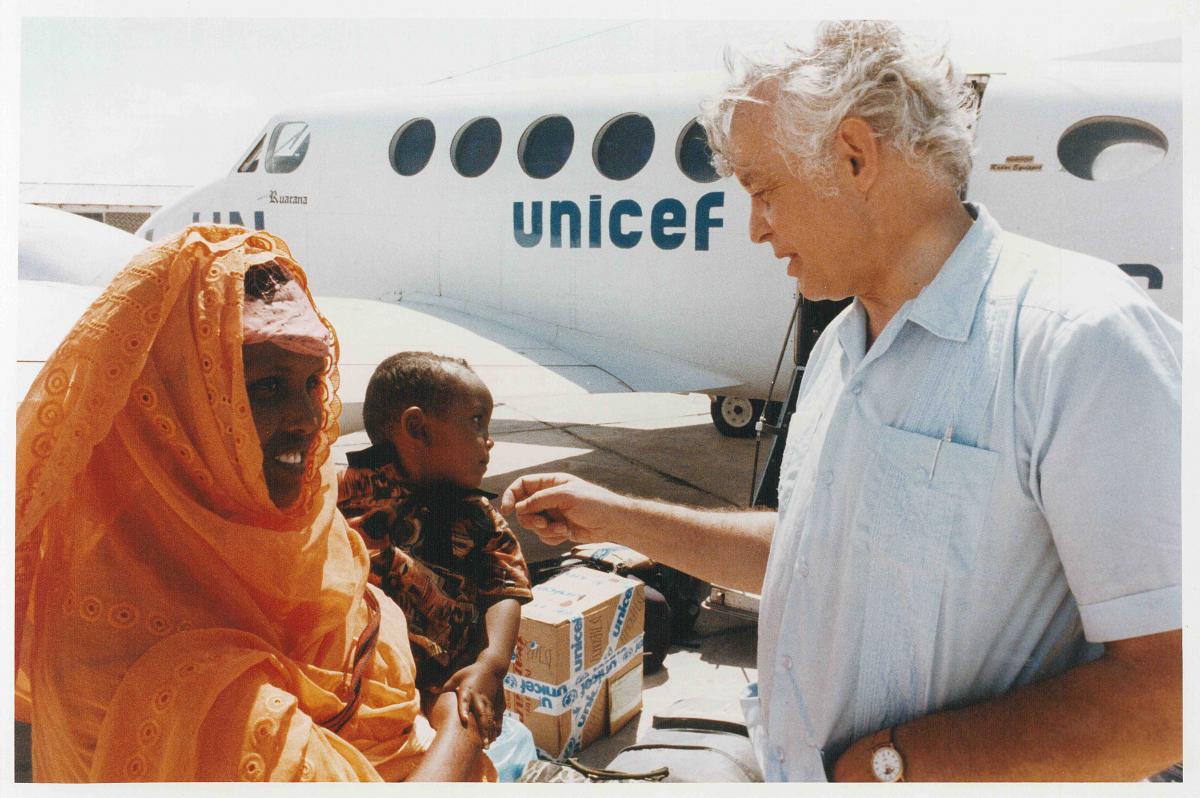 A much-loved member of the Nouveaux Pauvres dining club, Malcolm’s reputation as a raconteur par excellence was established early on, and throughout his life, cricket escapades and travel anecdotes were never far from his lips, the latter often delivered in a local accent (some more successfully than others). But while a first glance might cast him as ‘old world’, his deep knowledge of developing countries, empathy with the vulnerable and willingness to challenge injustice, including by his own government, soon dispelled any illusion of conventionality.
A much-loved member of the Nouveaux Pauvres dining club, Malcolm’s reputation as a raconteur par excellence was established early on, and throughout his life, cricket escapades and travel anecdotes were never far from his lips, the latter often delivered in a local accent (some more successfully than others). But while a first glance might cast him as ‘old world’, his deep knowledge of developing countries, empathy with the vulnerable and willingness to challenge injustice, including by his own government, soon dispelled any illusion of conventionality.
From a young age, Malcolm championed the oppressed. He abandoned his plans for priesthood in 1962, having seen firsthand the abuses of apartheid South Africa during a year as assistant to the Archbishop of Cape Town. The following year he joined Oxfam, starting out as a field director in Nairobi, which cemented his love for the continent. Later, he supervised Oxfam’s relief programme in Cambodia, in the aftermath of the Khmer Rouge.
Oxfam was one of the first international agencies to enter the country in 1979, following the Vietnamese invasion. Millions of people were in need, displaced and traumatised. There was no functioning administration or infrastructure to support relief efforts and Malcolm and his team faced suspicion and outright hostility from the new Vietnamese-backed government. It was a tough experience and Malcolm – the born story-teller – spoke very little of it. Despite these difficulties, the team managed to organised the shipment and distribution of £25 million in food and medical supplies over the next seven months.
In 1982, Malcolm became UNA-UK’s director. Established in 1945 as a people’s movement for the UN, the Association gave him a platform to pursue a broader agenda. One of his first campaigns, ‘Let’s freeze this winter’, called on states to ‘freeze’ the production, testing and deployment of nuclear weapons. Under his watch, UNA-UK was an early supporter of the International Criminal Court. It lobbied the UK to reverse its decision to withdraw from UNESCO in 1985 (it re-joined 12 years later). And it joined forces with international civil society groups to call for a landmine ban, eventually secured in 1997.
Throughout his tenure, Malcolm worked with organisations from around the world. He visited troubled regions, from Afghanistan to Somalia, and met with local communities. He also gave over 20 years of dedicated service to the World Federation of UNAs, leading, at various points, its European and Commonwealth groupings, and chairing its Executive Committee in 1995-2000. His easy manner and humour won him friends in many countries, and tributes have reached UNA-UK from China, Ghana, India, Nigeria and Syria, to name a few.
Malcolm’s directorship also coincided with the UN’s 40th and 50th anniversaries. On both occasions, he worked with a broad coalition of partners on activities that engaged everyone from the Queen and successive Prime Ministers to grassroots UNA-UK members and primary-school children.
Then, as now, UNA-UK sought to connect people in the UK to the mission of the UN. One of Malcolm’s most ambitious projects, embedding Agenda 21 – one of the outcomes of the 1992 ‘Rio Summit’ – within local communities in Britain, exemplified this aim. It also led to the founding of Stakeholder Forum, now a leading sustainable development organisation. His efforts to encourage learning about the UN, in particular through Model United Nations, continue to bear fruit today. So too does his work to encourage volunteering. International Service, which began life as part of UNA-UK, has given hundreds of young people the opportunity to volunteer abroad.
Yet Malcolm and UNA-UK also faced difficulties. The tragedies in Rwanda and Srebrenica led many to question the UN’s effectiveness. Malcolm responded by putting its political constraints into context, but he never shied away from being critical of the UN when he needed to be.
Similarly, whilst maintaining close links to HMG, he was fiercely opposed to the 2003 invasion of Iraq, calling instead for intense diplomacy and a Security Council resolution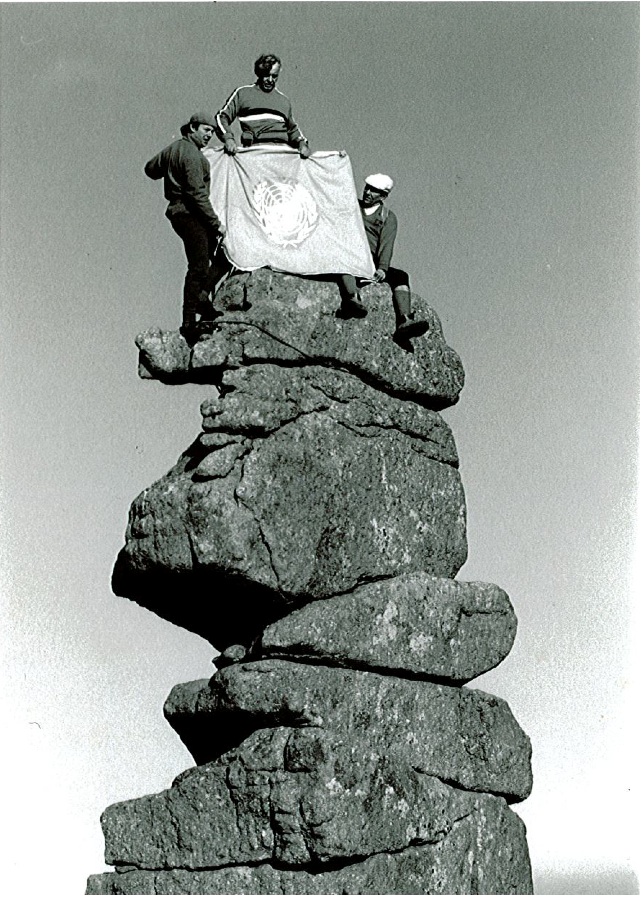 to deploy a new weapons inspection team and set out conditions for Saddam Hussein. Only if these were not met, he argued, should the Council begin to contemplate further action. UNA-UK teamed up with a number of other organisations to organise public petitions and protests to this effect. Later, although he strongly believed that the UN should play a lead role in reconstruction, he remained concerned that it would be asked to fill the void and blamed for any failures. He also believed that while many felt the episode had shown the UN could be sidelined, it had in fact only emphasised the need for Security Council authorisation to confer legitimacy on such action.
to deploy a new weapons inspection team and set out conditions for Saddam Hussein. Only if these were not met, he argued, should the Council begin to contemplate further action. UNA-UK teamed up with a number of other organisations to organise public petitions and protests to this effect. Later, although he strongly believed that the UN should play a lead role in reconstruction, he remained concerned that it would be asked to fill the void and blamed for any failures. He also believed that while many felt the episode had shown the UN could be sidelined, it had in fact only emphasised the need for Security Council authorisation to confer legitimacy on such action.
There were financial challenges too. Many UNA-UK members fondly recall Malcolm’s fundraising walks, the last from John O’Groats to Land’s End. Often the monies raised would go to UN projects instead of UNA-UK’s coffers. The stories he brought back with him, though, were enriching in a different way. Never a fan of office routine, he also travelled abroad frequently. It was not unusual for staff to learn of a spontaneous trip or to find a suitcase and sleeping bag in his office. On his return, he would brief UNA-UK branches on his visits.
Above all, Malcolm cared about people. He could be headstrong and a harsh critic, particularly when he perceived hypocrisy or lack of vision. But friends and colleagues marvelled at his ability to connect with individuals from all walks of life. He also practiced what he preached, helping, for instance, to secure refugee status for his UNA counterpart in then-Zaire, who had to flee the country as a result of his activism.
Outside work, Malcolm stayed true to his internationalist mission. He served as a Governor of International Students' House in London and Chair of the International Broadcasting Trust. He was also an active member of St Mary’s Church, Charlbury, and President of his local cricket club, reflecting his deep commitment to his faith and the sport. Indeed, few things gave him greater pleasure than a day at Lord’s watching a test match against Australia – the one occasion on which he was known to take a biased view. He never really retired and continued to campaign on behalf of the Association almost right until his death.
Malcolm leaves behind Ann, his wife of 47 years; three children and a two-year-old grandson. He also leaves behind many within UNA-UK and across the world who saw him as a living tribute to the UN.
Malcolm Harper, CMG, former director of the United Nations Association – UK, born 21 June 1939; died 9 May 2013

